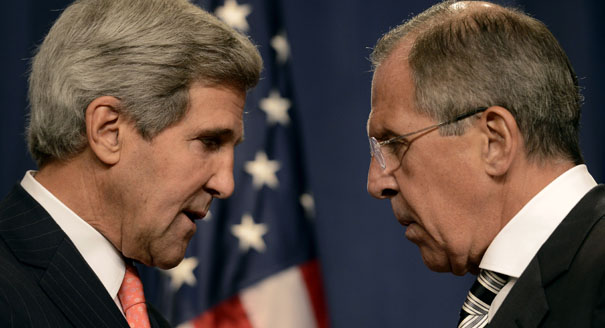At last, a preliminary date has been set for the Geneva II negotiations: November 23. As a result of the Russian-American chemical détente, the Syrian opposition is now expected to sit down with representatives from Bashar al-Assad’s regime, to discuss the prospect of a unity government. But note ”preliminary.”
The government has already signalled that it will participate. According to the Russians, Assad has even decided who will be in his conference delegation. Meanwhile, his government is embarking on something of a charm offensive to win back international support, and Assad himself has given more interviews in the past three months than he did during 2011 and 2012 put together.
Opposition disunity
The opposition is another story. The United Nations/Arab League mediator Lakhdar Brahimi, currently on a whirlwind tour of the Middle East to drum up support for the conference, is trying his best to lower expectations. The November 23 date may still change, he says, explaining that negotiations “will not be held without a credible opposition”.
For Assad, this is something very close to a win-win situation, and he has everything to gain from kicking the ball over to the opposition’s court. The only thing he fears is to find himself trapped in a negotiating process where he'll actually be held to his word (by Russia), but it seems far more likely that the opposition will either refuse to go or tear itself apart over the conference.
On Le Monde’s Syria blog, Frantz Glasman predicts that the National Coalition – Syria’s leading exile alliance, which is backed by most Western and Gulf states, and was created specifically for something like Geneva – ”will refuse in order to survive”. The Coalition’s most important member factions – including the Muslim Brotherhood and its allies in the Syrian National Council – have said that they do not accept ”unconditional negotiations”, i.e. to talk to the regime without more clarity on the ultimate fate of Bashar al-Assad. A spokesperson for the Coalition's official leadership, veteran leftist journalist Fayez Sara, says participation hinges on some good faith concessions from the government, but this is presumably just a way to buy time. The group will meet on November 1 to take a final decision, after input from both member factions and foreign benefactors.
Meanwhile, the Russians are pushing for the inclusion of other opposition groups than just the National Coalition. The most likely candidate is the National Coordination Commission, a small leftist-led secular alliance which has long argued for a negotiated solution. It is supported by the Russians, and largely tolerated by the Assad regime, but more to drive a wedge into the opposition camp than because of any faith in its current relevance. The group is in fact a non-entity on the ground, even more so than the National Coalition.
The questions of representativity and credibility are of course the key problems, rather than just the internal divisions of the National Coalition. There is, now more than ever, a gaping disconnect between the political opposition and the fighters on the ground. Even if the National Coalition were to go to Geneva in perfect unity, it has little to no influence over the main armed factions inside Syria, which seem to be overwhelmingly opposed to the Geneva process – partly on principle, partly because they're not included.
Money and Momentum
But in a war like this, so much depends on the twin forces of money and momentum. In the unlikely event that the Geneva negotiations begin and go well, and Assad can be shown making real concessions, there is a good chance that armed groups that have so far held out for a hardline approach will want to get on the bandwagon. In addition, states like Saudi Arabia can use their financial muscle to nudge the unconvinced along. Such a breakthrough would certainly not gain the backing of all of the insurgency, but perhaps a critical mass, or at least enough to change the political dynamics in some meaningful way.
Absent that, the familiar pattern will surely set in, where opposition factions enter into a bidding war over who can reject compromise in the most hawkish manner; another pointless show of individual grandstanding, when what is needed is a leadership that can and will share the collective burden of risky and even unpopular decisions.






